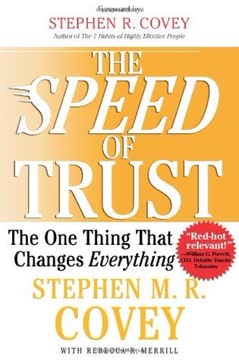Key Takeaways
1. Trust is the new currency of the global economy
Trust is what makes our markets work. It "makes the world go round." At its core, capitalism is based on three things: capital, liquidity, and trust.
Trust affects speed and cost. When trust goes down in a relationship, on a team, in an organization, or in a country, speed decreases and cost increases. This is due to the many steps needed to compensate for lack of trust, creating a low-trust tax. Conversely, when trust goes up, speed increases and cost goes down.
Trust impacts economic outcomes. Research shows:
- High-trust organizations outperform low-trust organizations in total shareholder return by 286%
- Countries with higher levels of trust experience greater economic growth and investment
- 77% of informed respondents refuse to buy products or services from companies they distrust
- 55% are willing to pay a premium for products from trusted companies
Trust is essential in the digital age. In today's networked world, trust has become critical for:
- Enabling markets to function
- Facilitating collaboration and innovation
- Attracting and retaining talent
- Enhancing reputation and brand value
2. The crisis of trust coexists with a renaissance of trust
We're never so vulnerable than when we trust someone—but paradoxically, if we cannot trust, neither can we find . . . joy.
The paradox of trust. While there is a global crisis of trust, evidenced by low trust in institutions and widespread corruption, there is simultaneously a renaissance of trust led by individuals and organizations who understand its power.
Examples of the trust crisis:
- Only 46% of informed respondents in the U.S. trust business to do what is right
- Only 40% of informed respondents in the U.S. trust government to do what is right
- 53% of U.S. employees don't think their boss is honest
Examples of the trust renaissance:
- Muhammad Yunus's Grameen Bank, built on trust, achieved a 98% loan repayment rate
- eBay facilitates millions of transactions daily between strangers based on trust
- Companies like Zappos and Netflix build successful business models on trusting customers
3. Smart Trust combines propensity to trust with analysis
Smart Trust is judgment. It's a competency and a process that enables us to operate with high trust in a low-trust world. It minimizes risk and maximizes possibilities.
Smart Trust balances heart and head. It combines:
- Propensity to trust: The inclination or desire to trust people
- Analysis: The ability to assess opportunity, risk, and credibility
The Smart Trust Matrix:
- High propensity to trust + Low analysis = Blind trust (Zone 1)
- High propensity to trust + High analysis = Smart Trust (Zone 2)
- Low propensity to trust + Low analysis = No trust (Zone 3)
- Low propensity to trust + High analysis = Distrust (Zone 4)
Smart Trust in action. Examples:
- eBay's trust-based system with built-in safeguards
- Netflix's DVD rental model that trusts customers but monitors for abuse
- L.L.Bean's 100% satisfaction guarantee balanced with occasional account closures
4. Credibility is built on character and competence
A brand for a company is like a reputation for a person. You earn reputation by trying to do hard things well.
Credibility components:
- Character: Integrity (honesty and congruence) and Intent (motive and agenda)
- Competence: Capabilities (talents, skills, expertise) and Results (track record and performance)
Building credibility:
- Demonstrate consistent trustworthy behavior over time
- Align words with actions
- Develop relevant skills and expertise
- Deliver consistent results
Examples of credible leaders and organizations:
- Warren Buffett: Known for integrity and investment acumen
- Apple: Consistently delivers innovative, high-quality products
- Mayo Clinic: Combines medical expertise with patient-centered care
5. Declaring intent and assuming positive intent builds trust
Whatever you can do, or dream you can, begin it. Boldness has genius, power, and magic in it.
Declaring intent:
- Communicate both what you intend to do and why
- Creates context and inspires hope
- Reduces suspicion and misunderstanding
Assuming positive intent:
- Start with the belief that others have good motives
- Opens up possibilities and enhances collaboration
- Inspires reciprocity
Examples:
- PepsiCo's "Performance with Purpose" declaration
- Google's "20% time" policy, trusting engineers to innovate
- Indra Nooyi's practice of assuming positive intent in all interactions
6. Doing what you say you'll do is crucial for trust
Make a dent in the universe.
The power of follow-through:
- Builds credibility and reputation
- Inspires others to trust you
- Creates a virtuous cycle of trust
Strategies for consistent delivery:
- Make realistic commitments
- Communicate clearly about expectations
- Prioritize keeping promises, even when difficult
Examples:
- FedEx's reputation built on reliable overnight delivery
- Zappos' customer service exceeding expectations
- Warren Buffett's track record of honoring commitments
7. Leading out in extending trust creates a virtuous cycle
Trust men and they will be true to you; treat them greatly, and they will show themselves great.
Benefits of extending trust:
- Inspires reciprocity
- Brings out the best in people
- Creates a culture of trust
Smart Trust extension:
- Balance trust with appropriate safeguards
- Consider the situation, risk, and credibility involved
- Lead by example in trusting others
Examples:
- Best Buy's Results-Only Work Environment (ROWE)
- Whole Foods' empowerment of team members
- Ricardo Semler's radical trust-based management at Semco
8. Trust changes prosperity, energy, and joy
If history is a trustworthy guide, state-of-the-art technology won't ever replace state-of-the-heart technology.
Trust impacts three key outcomes:
- Prosperity: Increased revenues, profits, and economic growth
- Energy: Enhanced engagement, innovation, and creativity
- Joy: Greater happiness, satisfaction, and well-being
Research findings:
- High-trust societies produce more economic output
- Trust is the number one factor linked to happiness
- A 10% increase in trust has the same effect on employee satisfaction as a 36% increase in pay
Examples:
- Denmark: Highest-trust nation with high prosperity and happiness
- Google: High-trust culture leading to innovation and employee satisfaction
- Zappos: Trust-based approach resulting in customer loyalty and employee engagement
9. Creating a Smart Trust culture multiplies performance
Culture eats strategy for breakfast.
Characteristics of a Smart Trust culture:
- Clear expectations and accountability
- Empowerment and autonomy
- Transparency and open communication
Benefits of a Smart Trust culture:
- Increased speed and efficiency
- Enhanced innovation and creativity
- Higher employee engagement and retention
Examples:
- Berkshire Hathaway's "seamless web of deserved trust"
- W.L. Gore's lattice organization structure
- Zappos' culture of empowerment and customer trust
10. One person can make a difference in restoring trust
Never doubt that a small group of thoughtful, committed citizens can change the world. Indeed, it is the only thing that ever has.
The power of individual action:
- Small acts of trust can create ripple effects
- Leadership in trust can inspire others to follow
- Consistent trustworthy behavior can change cultures
Strategies for individual impact:
- Start with self: Build personal credibility
- Extend Smart Trust in your sphere of influence
- Be a role model for trustworthy behavior
Examples:
- Pedro Medina's "Yo Creo en Colombia" movement
- Oscar Morales' Facebook campaign against FARC
- Muhammad Yunus' microcredit revolution
Last updated:
FAQ
What's Smart Trust about?
- Focus on Trust: Smart Trust by Stephen M.R. Covey and Greg Link emphasizes the critical role of trust in both personal and professional relationships, especially in a world where trust is often lacking.
- Five Actions of Smart Trust: The book outlines five key actions to cultivate trust: choose to believe in trust, start with self, declare your intent, do what you say you’re going to do, and lead out in extending trust to others.
- Trust as a Performance Multiplier: Trust is presented as a performance multiplier that enhances productivity and collaboration while reducing costs associated with low trust, such as bureaucracy and disengagement.
- Cultural Impact: The authors illustrate how a high-trust culture can lead to increased prosperity, energy, and joy, transforming relationships and outcomes in organizations and communities.
Why should I read Smart Trust?
- Relevance in Today's World: In an era marked by distrust and skepticism, Smart Trust provides actionable insights on navigating relationships effectively, making it particularly relevant for leaders.
- Practical Framework: The book offers a proven framework based on extensive research and real-world examples, helping readers apply trust principles in their lives and workplaces.
- Transformational Impact: By reading Smart Trust, you can learn how to thrive in an unpredictable marketplace, leading to greater success and fulfillment.
- Enhancing Relationships: The insights can help improve team dynamics and foster a culture of trust, leading to better performance and satisfaction.
What are the key takeaways of Smart Trust?
- Trust is Essential: Trust is highlighted as a crucial life and leadership skill necessary for navigating the complexities of the 21st-century economy.
- Five Actions: The book provides a roadmap for building and maintaining trust: believing in trust, starting with self, declaring intent, following through, and extending trust to others.
- Trust as a Competitive Advantage: High-trust organizations outperform their low-trust counterparts by nearly three times, underscoring the importance of trust in achieving sustainable success.
- Trust is a Choice: Trust can be cultivated through intentional actions and behaviors, emphasizing that individuals can choose to believe in trust and act accordingly.
What is the definition of "Smart Trust" in [Book Title]?
- Judgment-Based Trust: Smart Trust is defined as a judgment that enables individuals to operate with high trust in a low-trust world, combining a propensity to trust with careful analysis of the situation, risk, and credibility.
- Minimizing Risk, Maximizing Possibilities: While trust involves risk, it also opens up possibilities for collaboration and innovation that would not be available in a low-trust environment.
- Balanced Approach: Smart Trust is not blind trust; it requires a thoughtful balance between trusting others and assessing their credibility and the risks involved.
- Guiding Judgment: The Smart Trust Matrix helps individuals make informed decisions about extending trust by considering both emotional and analytical aspects.
What are the five actions of Smart Trust?
- Choose to Believe in Trust: This foundational action encourages adopting a mindset that most people can be trusted, setting the stage for all other trust-building behaviors.
- Start with Self: Emphasizes the importance of self-trust and personal credibility, urging individuals to assess their own character and competence before expecting trust from others.
- Declare Your Intent: Involves clearly communicating your intentions and the reasons behind them, helping others understand your motives and fostering trust.
- Do What You Say You Will Do: Following through on commitments is crucial for building trust, demonstrating reliability and integrity.
- Lead Out in Extending Trust: Encourages leaders to be the first to extend trust, creating a culture of reciprocity that enhances overall trust within teams and organizations.
How does [Book Title] address the crisis of trust in society?
- Identifying the Crisis: The book discusses the pervasive crisis of trust in various sectors, including business, government, and personal relationships, highlighting the negative impact on society.
- Renaissance of Trust: Despite the crisis, the authors point to a renaissance of trust occurring in many organizations and communities, where leaders are successfully cultivating high-trust environments.
- Actionable Solutions: Smart Trust provides practical strategies for individuals and organizations to rebuild and enhance trust, contributing to a more positive and productive society.
- Cultural Transformation: By fostering a high-trust culture, organizations can transform relationships and outcomes, leading to increased prosperity, energy, and joy.
How can I apply the principles of [Book Title] in my workplace?
- Assess Your Beliefs: Start by evaluating your own beliefs about trust and how they influence your interactions with colleagues. Choose to believe in trust as a foundational principle.
- Communicate Clearly: Practice declaring your intent in meetings and discussions, ensuring that your colleagues understand your motives and objectives.
- Follow Through: Make a commitment to do what you say you will do, which will help build your credibility and encourage others to do the same.
- Lead by Example: Demonstrate trust in your team by extending it to them and modeling the behaviors you want to see, setting the tone for the organizational culture.
What role does self-trust play in [Book Title]?
- Foundation of Credibility: Self-trust is essential for establishing credibility; if you don’t trust yourself, it’s difficult to inspire trust in others.
- Influences Interactions: Your level of self-trust affects how you perceive and interact with others, impacting the overall trust dynamics in your relationships.
- Building Trustworthiness: By developing self-trust through consistent actions that reflect your values and principles, you create a solid foundation for earning the trust of others.
- Self-Reflection: Engaging in self-reflection helps you understand your own beliefs and behaviors regarding trust, identifying areas for improvement.
What is the Smart Trust Matrix?
- Two Key Factors: The Smart Trust Matrix consists of two main factors: the propensity to trust and the analysis of opportunity, risk, and credibility.
- Guiding Judgment: The matrix serves as a guide for leaders and individuals to assess situations and determine the appropriate level of trust to extend.
- Balanced Approach: Encourages a balanced approach that considers both emotional and analytical aspects of trust, helping individuals make informed decisions.
- Application in Decision-Making: By using the Smart Trust Matrix, individuals can navigate complex trust decisions in personal and professional contexts, leading to better outcomes and stronger relationships.
What are the best quotes from [Book Title] and what do they mean?
- “Trust is the essential ingredient for better teamwork.”: Highlights the foundational role of trust in fostering collaboration and effective communication within teams.
- “You can’t talk yourself out of a problem you behaved yourself into.”: Emphasizes the importance of accountability and integrity in maintaining trust; actions speak louder than words.
- “It is better to trust and be disappointed occasionally than to mistrust and be miserable all the time.”: Advocates for the benefits of extending trust, suggesting that the potential rewards of trust outweigh the risks of disappointment.
- “Trust begets accomplishment.”: Reflects the idea that trust is foundational for achieving results, as individuals and teams are more likely to collaborate effectively and reach their goals.
How can I create a culture of Smart Trust in my organization?
- Lead by Example: As a leader, demonstrate trust in your team by extending it to them and modeling the behaviors you want to see, setting the tone for the organizational culture.
- Encourage Open Communication: Foster an environment where team members feel safe to express their thoughts and intentions, helping clarify expectations and build trust among colleagues.
- Recognize and Reward Trust-Building Behaviors: Acknowledge and reward individuals who exemplify trust-building behaviors within the organization, reinforcing the importance of trust.
- Promote Reciprocity: Encourage a culture of reciprocity where extending trust leads to reciprocal trust, creating a positive cycle that benefits everyone involved.
Review Summary
Smart Trust receives generally positive reviews, with readers praising its practical advice on building trust in personal and professional settings. Many find the concepts insightful, particularly the emphasis on balancing trust with analysis. Some criticize the book for being repetitive and overly long, suggesting it could have been more concise. Readers appreciate the numerous examples and anecdotes but note that they sometimes feel disconnected from the main points. Overall, the book is seen as a valuable resource for leaders and individuals seeking to foster high-trust environments.
Similar Books
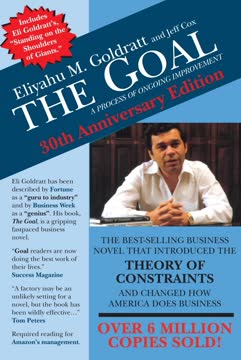



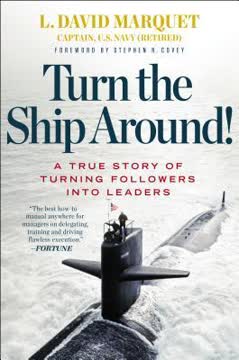
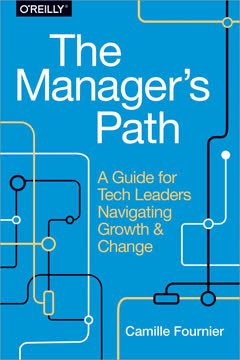



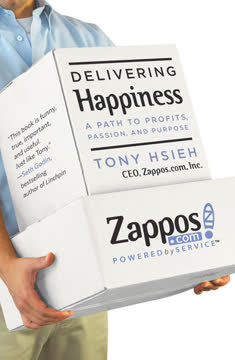
Download PDF
Download EPUB
.epub digital book format is ideal for reading ebooks on phones, tablets, and e-readers.

